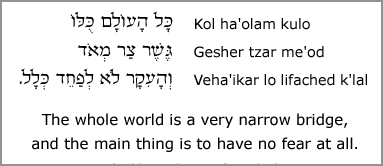General Information about Item:
- Genre: Material Lore – dish; Customary Lore – celebration, belief, superstition; Verbal Lore – folktale
- Language: English with some Chinese (Mandarin)
- Country of Origin: China
- Informant: G.P.
- Date Collected: November 23, 2020
Informant Data:
- G.P. is a 22-year-old senior studying computer science at Middlebury College and Dartmouth College’s dual degree program. He grew up in Jiangsu province, China, and went to college in the US. He normally celebrates the Chinese New Year with his family in Jiangsu province, which is along the east coast of China.
Contextual Data:
- Cultural Context: Roosters are eaten during the Chinese New Year mainly because of its auspicious name. Rooster in Chinese is pronounced as “jī” (鸡), and in ancient China, the word “jī” (鸡) is the same as “jí” (吉), which means good. Many auspicious proverbs are related to “jí” (吉). For example, “jílì” (吉利), which means good fortune, and “jí xiáng rú yì” (吉祥如意), which is used to wish people good luck. Additionally, roosters are traditionally considered an auspicious animal because of the many folktales associated with it.
- Social Context: During the Chinese New Year, family members gather together to have dinner or lunch. The rooster is served as a main dish. It is cooked in many different ways, for example, chicken soup, boiled chicken, and calabash chicken, etc.
Item:
- Roosters are eaten commonly during festivals. They are cooked in very different ways across different areas of China. In the southern part of China, people like to cook the whole chicken altogether as chicken soup. Chopped boiled chicken with salt and soy sauce is also common. In the northern part, roosters are often fried. For example, in the northwest part of China, calabash chicken is common. Roosters are eaten during the Chinese New Year mainly because of its auspicious name. The name of the rooster is a homophone for good fortune.
Image File:
Transcript of Interview Clip:
S.T. (collector): What is one of the most interesting or important dishes that is eaten during the Chinese New Year in your family?
G.P. (informant): We often make chicken soup during the Chinese New Year Eve. Although we also eat hens at other times, we deliberately choose the strongest rooster to make the soup during the Chinese New Year. The rooster is a symbol of prosperity and health. We often cook the whole rooster altogether, which symbolizes that good fortune is held together.
S.T.: Is there any reason that rooster has such an auspicious meaning?
G.P.: The story that I heard is that rooster crows actually not in the morning but at the darkest time of the night. The morning comes following the crow of the rooster. At the darkest time of the day, monsters often come out to search for people to eat. The loud crow of the rooster is a way to drive away monsters and thus protect the villagers. Thus, the rooster is often considered an auspicious animal.
S.T.: The name of the rooster in Chinese is probably also related to some auspicious words, right?
G.P.: Yes, I think the word rooster in Chinese is “jī” (鸡) which resembles “jí” (吉), which means good fortune.
S.T.: Any custom when eating the rooster?
G.P.: The elders often eat the head and the rooster crest. The rooster crest symbolizes the “top.” Eating the rooster crest expresses the hope of becoming the best at whatever you are doing. The elders eat the head because they are the “head” of the family. The children often eat the legs of the rooster, since it represents that the children can “run fast” (become the best students) in their schoolwork.
Informant’s Comments:
- The rooster is an auspicious animal in traditional Chinese culture. In ancient China, people wake up and go to work when hearing the crow of roosters. Thus, the rooster is often associated with diligence.
Collector’s Comments:
- My family also eats roosters during the Chinese New Year. We also have the tradition of cooking the whole chicken altogether. My family believes that the whole chicken represents the union of the family. This is an example of homeopathic magic.
Collector’s Name: Stela (Yunjin) Tong




